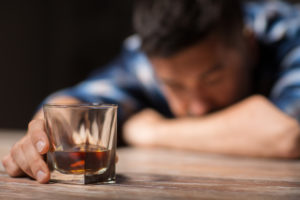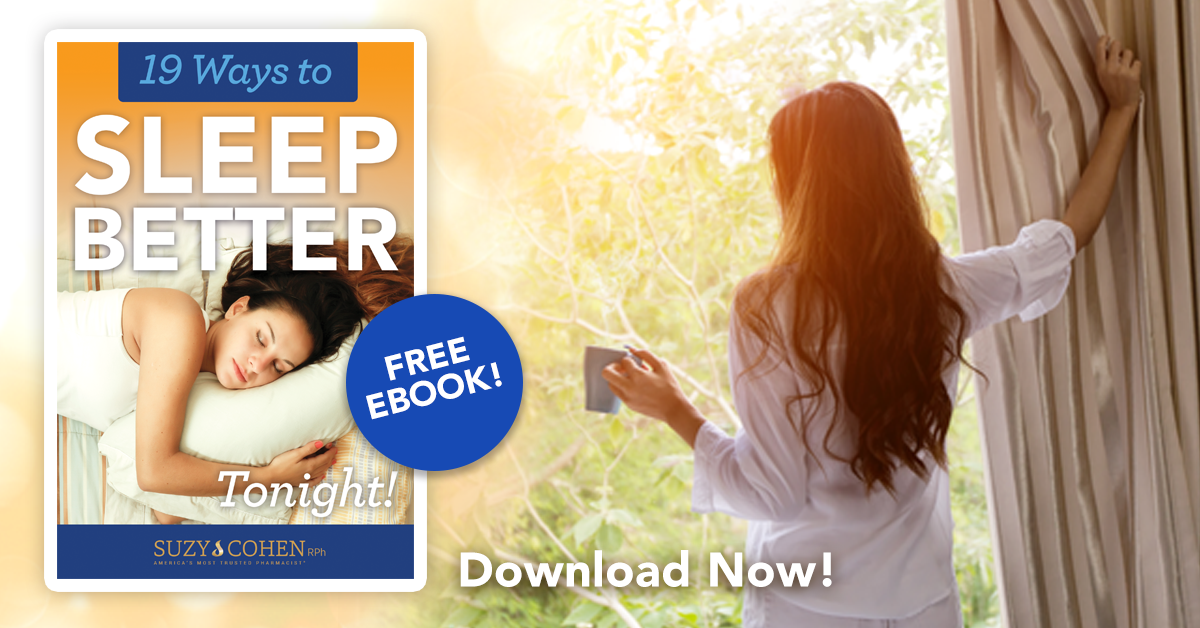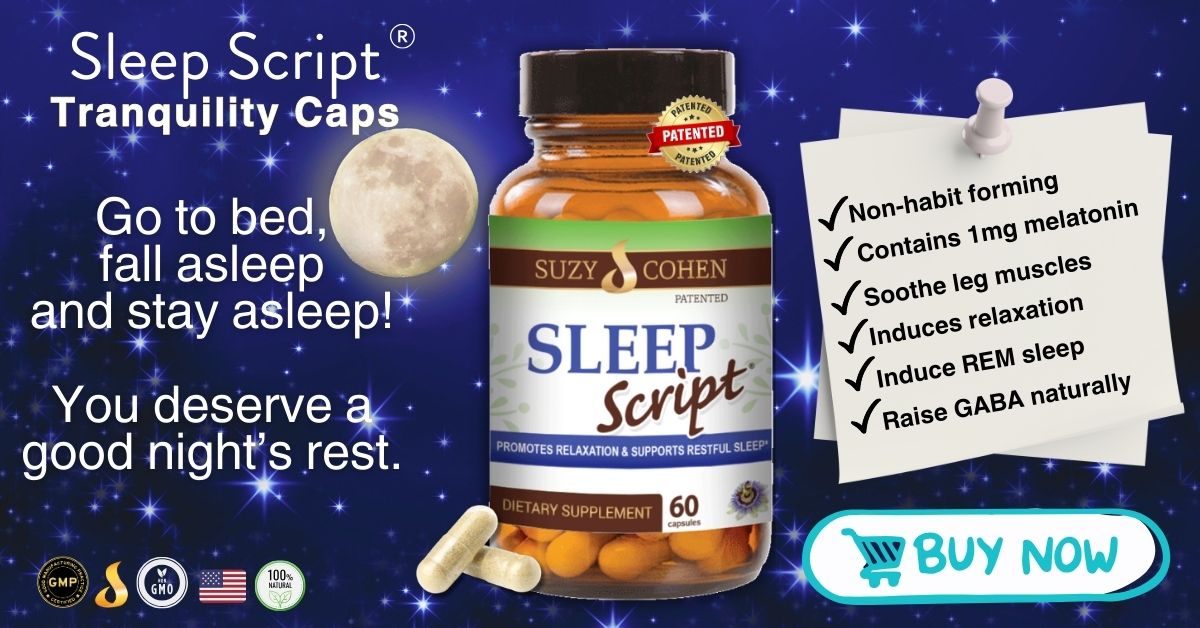What's On This Page?
ToggleAlcohol is a common part of socializing and unwinding, with almost 87 percent of American adults having consumed it at some point, according to the National Institute on Alcohol Abuse and Alcoholism.
Surprisingly, around 20 percent of Americans use alcohol as their sleep aid, unaware it may worsen insomnia! For me, if I drink even one regular full glass of wine, I will sleep for an hour and then be up pretty much all night! But if I drink a small amount, I sleep just fine. I’m sure that’s just my body chemistry, but I’m not alone. Understanding alcohol’s effects on sleep patterns can reveal why drinking too much for your own chemistry backfires and causes insomnia.
While alcohol may help you fall asleep initially, it disrupts the restorative quality of sleep by altering sleep architecture and causing several issues which I’ve listed below.
With sleep being a cornerstone of health, understanding how alcohol affects our sleep patterns is crucial and alcohol can lead to insomnia through several mechanisms.
8 Reasons – Here’s How Alcohol Causes Insomnia
Disruption of Sleep Architecture
Alcohol might make you feel sleepy and help you fall asleep initially, but it significantly disrupts the quality of sleep. It reduces the amount of time spent in REM (Rapid Eye Movement) sleep, which is crucial for feeling rested and for memory consolidation. As the night progresses and the body metabolizes alcohol, there’s often a rebound increase in REM sleep, which can lead to vivid dreams or nightmares, making sleep less restful or even causing awakenings.
Sedative Effect Wears Off
Alcohol acts as a sedative, initially promoting sleep onset. However, as the alcohol is metabolized, its sedative effect diminishes, and this can lead to early awakenings or difficulty returning to sleep. This is called rebound wakefulness.
Increased Nocturia
Alcohol is a diuretic, increasing urine production which can lead to more frequent trips to the bathroom during the night, interrupting sleep.
Gastroesophageal Reflux Disease (GERD)
Alcohol can relax the lower esophageal sphincter, leading to acid reflux or heartburn, which can wake individuals up from sleep.
Anxiety and Stress
While alcohol might initially reduce anxiety, it can also lead to an increase in anxiety levels once it wears off, particularly in individuals prone to anxiety or those who drink to cope with stress. This rebound anxiety can interfere with sleep.

Withdrawal Symptoms
For those with alcohol dependency, the withdrawal symptoms, which can include insomnia, can start even before the alcohol has completely left the system, leading to poor sleep quality or inability to sleep.
Impact on Breathing
Alcohol can relax the muscles in the throat, potentially worsening sleep apnea or snoring, which disrupts sleep.
Circadian Rhythm Disruption
Regular or heavy alcohol consumption can also affect the body’s circadian rhythms, making it harder to fall asleep at the right times and stay asleep through the night.
Given these effects, if you or someone you know struggles with sleep after consuming alcohol, reducing or moderating alcohol intake, particularly close to bedtime, might be beneficial. It’s also helpful to maintain good sleep hygiene practices like having a consistent sleep schedule and creating a restful sleep environment.
How Can You Determine if You’re An Alcoholic?
Alcohol Use Disorder (AUD): A Recognized Medical Condition
Alcohol Use Disorder (AUD) is the preferred clinical term for what was once colloquially referred to as being an “alcoholic.” It’s not just about drinking too much, it’s a medical condition marked by an impaired ability to control alcohol use despite significant consequences.
The Diagnostic and Statistical Manual of Mental Disorders (DSM-5) defines AUD based on a set of specific criteria, which include:
- Drinking more alcohol or for a longer period than intended.
- Wanting to cut down or stop drinking but finding it difficult to do so.
- Spending excessive time obtaining, using, or recovering from alcohol.
- Craving alcohol.
- Ignoring or procrastinating about responsibilities at work, school, or home due to drinking.
- Continuing to drink despite social or interpersonal problems caused by alcohol.
- Giving up or reducing once fun or meaningful activities you used to enjoy.
- Using alcohol in situations where it’s physically dangerous – taking risks!
- Developing tolerance (needing a little bit more and more more alcohol to achieve the same feeling).
- Experiencing withdrawal symptoms when alcohol use stops such as a headache, hangover or anxiety.
The number of these criteria a person meets helps determine the severity of AUD meaning it can be mild, moderate, or severe. There is more information in this PAPER. If you’re interested, I wrote an article about my brother who had AUD and you can read: My Brother Was a Secret.
Why You Should NEVER Mix Alcohol with Sleep Aids
I get it. You’re desperate for a good night’s sleep, and reaching for a glass of wine and your go-to sleep aid – whether it’s an over-the-counter (OTC) product or a prescription medication – feels like the perfect one-two punch. But trust me, it’s a risky combo that can do more harm than good. Even if you think it’s “just this once,” let me explain why this pairing is bad news for your health and safety.
What Happens When You Mix Alcohol and Sleep Aids?
Both alcohol and sleep aids (like antihistamines, melatonin, or prescription medications such as benzodiazepines, zolpidem, or eszopiclone) work on your central nervous system (CNS) to slow things down. On the surface, that might sound like a win for you if you’re struggling to fall asleep. But when you combine these substances, their sedative effects amplify each other, and not in a good way. The synergy has led to fatalities, so I really want to emphasize this.
The Double Whammy of Sedation – It Causes 3 Major Problems!
- Extreme Drowsiness: You’re not just sleepy; you’re groggy to the point of impaired coordination and judgment. This can lead to dangerous situations, like falling or making unsafe decisions if you wake up disoriented.
- Breathing Problems: Alcohol and many sleep aids depress your respiratory system. This means your breathing slows down, and in severe cases, it can stop altogether, especially if you already have conditions like sleep apnea.
- Increased Risk of Overdose: Mixing alcohol with certain sleep medications, particularly benzodiazepines or barbiturates, increases the risk of overdose. These substances can interact unpredictably, leading to dangerous levels of sedation or toxicity.
How OTC Sleep Aids React
Even non-prescription sleep aids aren’t safe with alcohol. Antihistamines like diphenhydramine (found in products like Benadryl or Tylenol PM) can cause exaggerated drowsiness, confusion, and even rapid heart rate when combined with alcohol. Trust me, that’s not the kind of heart-pounding night you’re looking for.
Prescription Meds Are Even Riskier
Drugs like Ambien or Lunesta are already potent sleep aids. Throw alcohol into the mix, and you’ve got a cocktail that could lead to erratic behavior, memory loss (hello, sleepwalking or sleep-driving!), and severe respiratory depression.
I know you might feel like nothing else works, but combining alcohol with sleep aids is playing with fire. It’s not just about grogginess or a rough morning—it can be downright life-threatening. If you’re struggling with sleep, there are safer alternatives, like improving your sleep hygiene, trying relaxation techniques, or consulting a healthcare provider for tailored solutions.
Remember, the goal isn’t just to fall asleep—it’s to wake up feeling alive, healthy, and ready to tackle the day. So, skip the booze-sleep-aid combo, and take care of your body—it’s the only one you’ve got.
Summary
Alcohol might seem like a handy sleep aid, initially helping you doze off, but it’s a double-edged sword when it comes to quality rest. It disrupts the natural sleep architecture by reducing REM sleep, which is essential for mental rejuvenation, leading to vivid dreams or nightmares later in the night. This disruption can cause what’s known as “rebound wakefulness,” where you wake up in the middle of the night and struggle to return to sleep.
Additionally, alcohol’s diuretic effect leads to more nighttime bathroom visits, and it can worsen conditions like acid reflux or sleep apnea, further fragmenting a person’s sleep. Long-term, regular alcohol consumption can even alter your circadian rhythms, leading to chronic insomnia.
A recent study published in 2022 in SLEEP Advances, titled “Alcohol use and poor sleep quality: a longitudinal twin study across 36 years,” found that persistent heavy drinking over decades is associated with increased sleep disturbances, suggesting that alcohol’s negative impact on sleep is not just immediate but can accumulate over time, leading to significant sleep quality issues. This study underscores the importance of reconsidering alcohol as a sleep aid, highlighting that while it might help you fall asleep, it significantly impairs the restorative nature of sleep over the long term.

Suzy Cohen, has been a licensed pharmacist for over 30 years and believes the best approach to chronic illness is a combination of natural medicine and conventional. She founded her own dietary supplement company specializing in custom-formulas, some of which have patents. With a special focus on functional medicine, thyroid health and drug nutrient depletion, Suzy is the author of several related books including Thyroid Healthy, Drug Muggers, Diabetes Without Drugs, and a nationally syndicated column.


